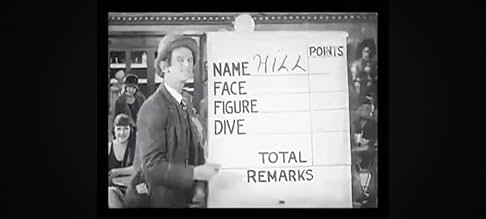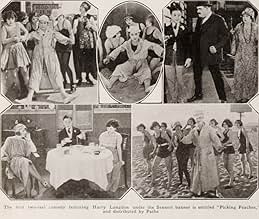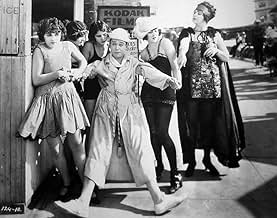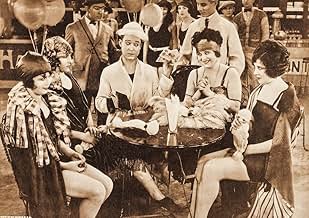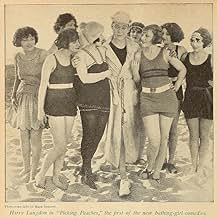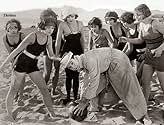This, this first short to appear in theatres starring the great Harry Langdon, is a fun watch, but it really shows its roots as a piece written for another comedian and the degree to which the proper showcase for his comedy in films had not really been found. The film proceeds at a nice jaunty pace without the wild, frenetic slapstick that was associated with Mack Sennett's studios, but the gags there are in the film do not always suit Harry Langdon especially well, nor do they always proceed from character or situation.
At the same time as it doesn't offer much opportunity for his comic character (reportedly already well-developed in Vaudeville) to shine, it also doesn't allow the camera to linger quite long enough for him to draw the comedy purely out of his reactions. It's really the occasional, funny, and wonderfully played moment of expressiveness from Langdon that one has to look for. Intermittent flashes (such as the gag in which the woman's leg seems to be removed, repeated in "His First Flame," and his immediate turning on his heel when his beard disguise is discovered) show the familiar Langdon, but mainly his character here is, as other reviewers have noted, his character here is actually a rather unlikeable cheating husband. He's made even more unlikeable when we're shown how upset he is when he thinks his wife is cheating. It's odd to watch Harry as a ladies' man, and he comes across as rather innocently eager in his pursuit of women.
Mack Sennett, aware that his star was not established in films and never known for being particularly sophisticated, made sure the film included many women (the peaches in the title) in bathing suits. I'm sure no heterosexual male audience-member minded this in 1924, and they won't today either, but it doesn't really make the film as a comedic or artistic piece, so to speak.
There is a nice stunt sequence here, a few very charming early animated sequences, a bunch of good gags, and a bunch of pedestrian gags, and a fairly typical premise. Much better was coming in Langdon's career. If I had seen it without knowing who Harry Langdon was (and would become) I would have thought it was an above-average 1920s two-reeler with a lead-comic who injects some subtle and funny moments into an otherwise unlikeable role. That's what it is.

